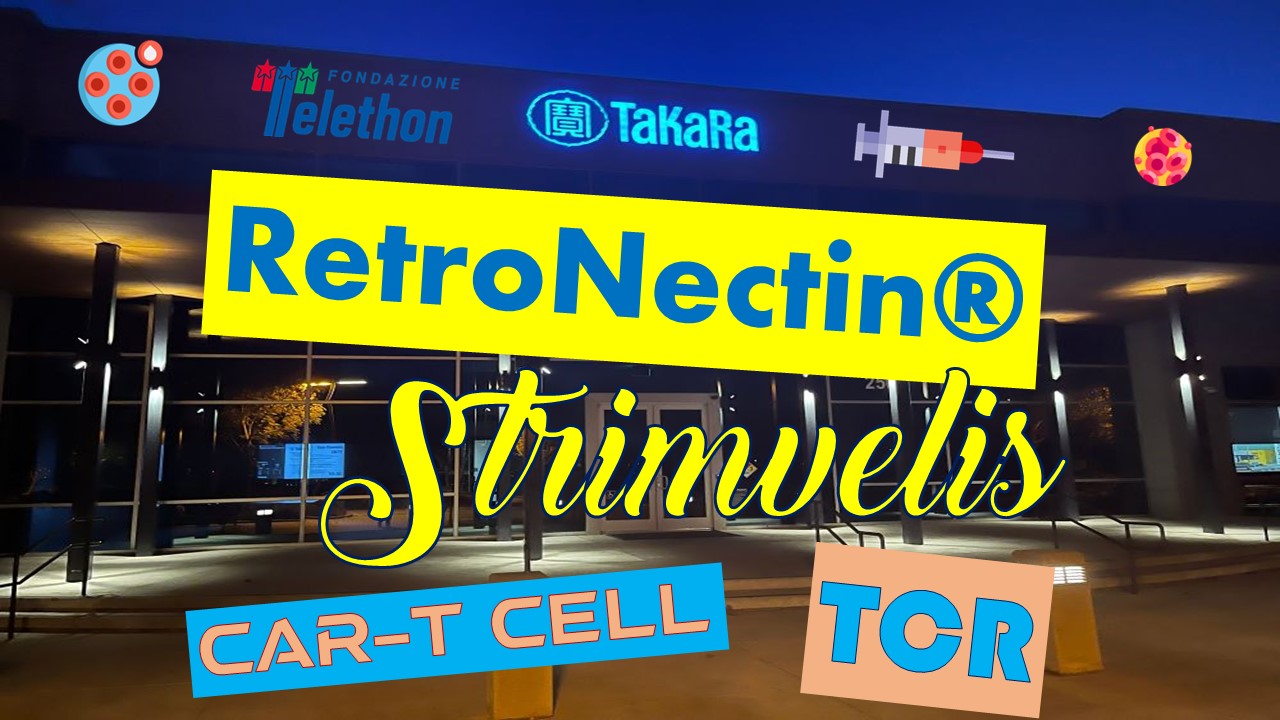Early this January, Nanoscope Therapeutics Inc., a biotechnology company in the clinical stages of researching gene treatments for retinal degenerative illnesses, announced the appointment of Massoud Motamed, Ph.D., as Vice President of Quality. Dr. Motamed has nearly ten years of expertise in CGMP quality and compliance, which included a plethora of experience in the production of gene therapy products and regulatory assessment.
While certain routes exist for some outliers who are usually company cofounders and family business inheritors, the path to the higher rungs of the corporate ladder remains the same – it always begins with solid education.
Bachelor of Science in Biochemistry, Master of Science in Organic Chemistry
Massoud Motamed took up a Bachelor’s degree in Biochemistry at the Southern Methodist University at Dallas, Texas with a 4.0 grade point average (GPA). He complemented this with a Master of Science in Organic Chemistry (GPA: 3.9) which he took from one the Times Higher Education World Reputation Rankings Global University Super-Brands, University of California, Berkeley. While being a Golden Bear, he pursued research with Professor Richmond Sarpong and served as teaching assistant for the undergraduate level organic synthesis, undergraduate organic chemistry laboratory and introductory chemistry courses. At UC Berkeley, Motamed was able to develop a synthetic strategy for a monomer of the heterodimeric natural product sodwanone E. He also performed methodology studies on the synthesis of 1,2-dihyropyridines from aziridinyl propargylic esters.
Doctor of Philosophy in Biochemistry
In an effort to produce original research that expand the boundaries of knowledge, Motamed partook in the University of Texas Southwestern Medical Center’s Doctorate of Philosophy in Biochemistry (GPA: 4.0) program. Under Professors Michael S. Brown and Joseph L. Goldstein, Motamed identified luminal loop 1 of SCAP as the cholesterol binding domain. His finding elucidated how the signal of cholesterol binding to loop 1 is propagated to loop 7, and thereby appropriately modulating SREBPs transport. He also studied the transfer mechanism of cholesterol from NPC1 to NPC2 in the lysosomes. While primarily focused on protein purification, characterization and functional assays during his doctorate, Motamed has made it certain to acquire additional experience with cell culture.
Post-Doctoral Studies
For his post-doctorate studies, Motamed worked as a research scientist at Baylor College of Medicine under Professor Bert O’Malley. Together they identified NAD+/NADH homeostasis as a key modulator of Steroid Receptor Coactivator 1 protein stability in cancer cell lines.
Extensive Regulatory Experience
Consumer Safety Officer for Pharmaceuticals
Massoud Motamed’s first job out of academia was at the U.S. Food and Drug Administration (FDA). His designation was Consumer Safety Officer for Pharmaceuticals. At FDA, he planned, directed and conducted domestic and international quality assurance audits to determine compliance to federal regulation. He analyzed large volumes of data (from data sets) to determine pharmaceutical compliance with regulations. Motamed provided on the job training to investigators on the application of Good Manufacturing Practices (GMPs), FDA regulations and inspection techniques. He was routinely requested to provide technical advice or consultation to peers on complex technical issues related to data analysis. Finally, it was his task to determine compliance to laboratory standards. During his stint at the U.S. FDA, Dr. Motamed has received many awards including FDA’s Outstanding Service award from the Office of Regulatory Affairs.
Director and Consultant of Auditing and Compliance
Armed with more than sufficient regulatory experience, Motamed became the Director and Consultant of Auditing and Compliance at Cipla. At the Indian multinational pharmaceutical company, he directed a multi-national pharmaceutical company’s compliance division to ensure adherence to US federal regulations. He implemented strategies and policies necessary to assure awareness and compliance to US FDA regulations. He provided written responses and held meetings with the federal government (US and Europe) outlining Cipla’s compliance. Dr. Motamed led and managed the audit and compliance teams, conducting audits of sites to ensure continued adherence to the code of federal regulations and anytime audit readiness and focusing on GxP systems by enhancing root-cause analyses and corresponding corrective actions. GxP is a general term used to describe the quality guidelines and regulations applied in the pharmaceutical industry. GxP is the abbreviation of “Good x Practice”. The “x” in GxP stands for the field the guidelines and regulations applied to. His excellent track record in pharmaceutical regulatory affairs has earned Dr. Motamed the Cipla Achievement Award.
Head of Quality
At University of Texas Southwestern Medical Center, Massoud Motamed was accepted as Head of Quality where he was tasked to develop a quality infrastructure for manufacturing gene therapy products (AAV) and draft a Quality Management System, including standard operating procedures, policies, protocols and validations. In addition, Motamed prepared the facility for aseptic processing, including driving air flow visualization studies and aseptic process validation, assisted with optimization of virus purification and recovery (downstream processing), did several drafts on clinical trial and IND documentation, and managed the institution’s Quality Unit.
About CDER & OSP
The Center for Drug Evaluation and Research (CDER) performs an essential public health task by making sure that safe and effective drugs are available to improve the health of people in the United States. As part of the U.S. Food and Drug Administration (FDA), CDER regulates over-the-counter and prescription drugs, including biological therapeutics and generic drugs. This work covers more than just medicines. For example, fluoride toothpaste, antiperspirants, dandruff shampoos and sunscreens are all considered drugs.
The Office of Strategic Programs (OSP) serves the Center Director, and the super office directors who lead major operations involved in regulatory oversight of human drugs. It is responsible for steering CDER-wide technological advancements and initiatives by evaluating existing data and analytic systems, canvassing innovation in data management systems, leading implementation of new IT portfolios, and managing CDER’s IT budget. The OSP conducts and maintains official CDER regulatory data for internal and external analysis, communications, and official reporting.
At CDER & OSP
As part of the Data Standards Staff (DSS), Motamed collaborated with other members in the provision of technical expertise for the planning, management, and execution of CDER’s initiatives to standardize and optimize the use of regulatory data in collaboration with internal and external stakeholders. Motamed was responsible for the data standards aspects of the Real-World Evidence (RWE) project under the 21st Century Cures Act. He worked with a multi-disciplinary team and hosted a working group to establish a Guidance for Industry on the application of RWEs. The focus of this effort was to provide sponsors with a framework for submitting healthcare data in support of regulatory submissions.
About CBER
CBER is the Center within FDA that regulates biological products for human use under applicable federal laws, including the Public Health Service Act and the Federal Food, Drug and Cosmetic Act. CBER protects and advances the public health by ensuring that biological products are safe and effective and available to those who need them. CBER also provides the public with information to promote the safe and appropriate use of biological products.
At CDER
Massoud Motamed’s most recent job before joining Nanoscope was still at FDA, but as a biologist at CBER. At CBER, he reviewed chemistry, manufacturing, and controls (CMC) information for Biologic License Agreements (BLA), Investigational New Drug (IND) applications, pre-INDs, and Master Files. He provided regulatory presentations, including the Deloitte – Industry Working Group (IWG) in September 2021 and FDA 101 (2022). He lead FDA’s Peptide Reviewers Working Group to establish reviewer aids for this product category. For his efforts that remained top-notch at the FDA center, he was awarded the CBER Incentive Awards for both the years 2021 and 2022.
Final Say
“Massoud’s experience leading quality and compliance in CGMP manufacturing for gene therapies will be valuable as we progress in our Chemistry, Manufacturing and Controls (CMC) capabilities. This appointment supports the continued advancement of our optogenetic therapies to restore vision in millions of people blinded by retinal diseases and highlights our evolution as a company,” said Sulagna Bhattacharya, CEO of Nanoscope.
Dr. Motamed said, “I am happy to join the highly driven team at Nanoscope in the development of its cutting-edge strategy to cure retinal degenerative disease. ” As the Company advances in its clinical trials, the regulatory expert looks forward to assisting Nanoscope in navigating advanced clinical development and anticipated regulatory submissions.
About Nanoscope Therapeutics Inc.
For the millions of people suffering from retinal degenerative disorders for whom there is no known treatment, Nanoscope Therapeutics is developing gene-agnostic, sight-restoring optogenetic medicines. Multi characteristic opsin (MCO) 010, the company’s lead asset, is a light-sensitive molecule that is currently being tested in Phase 2b multicenter, randomized, double-masked, sham-controlled clinical trials for retinitis pigmentosa in the United States (NCT04945772). Top-line data are anticipated in Q1 2023. The business has also finished enrolling Stargardt patients in a Phase 2 trial of the MCO-010 treatment (NCT05417126). MCO-010 has been given FDA orphan drug designations for RP and Stargardt as well as FDA Fast Track designation for RP. The non-viral laser delivery of MCO-020 gene therapy for geographic atrophy is also one of the company’s preclinical assets.
Subscribe
to get our
LATEST NEWS
Related Posts

Cell & Gene Therapy
Eyeing the Future: Stem Cells and the Promise of Corneal Restoration
By reducing dependency on donor tissues and minimizing immunosuppressive demands, iCEPS has the potential to redefine LSCD treatment.

Cell & Gene Therapy
A Cure in the Code: How Gene Editing is Transforming the Fight Against Sickle Cell Disease
BIVV003’s success highlights gene editing’s potential to treat genetic disorders at their root, offering hope for other conditions.
Read More Articles
Myosin’s Molecular Toggle: How Dimerization of the Globular Tail Domain Controls the Motor Function of Myo5a
Myo5a exists in either an inhibited, triangulated rest or an extended, motile activation, each conformation dictated by the interplay between the GTD and its surroundings.
Designing Better Sugar Stoppers: Engineering Selective α-Glucosidase Inhibitors via Fragment-Based Dynamic Chemistry
One of the most pressing challenges in anti-diabetic therapy is reducing the unpleasant and often debilitating gastrointestinal side effects that accompany α-amylase inhibition.













